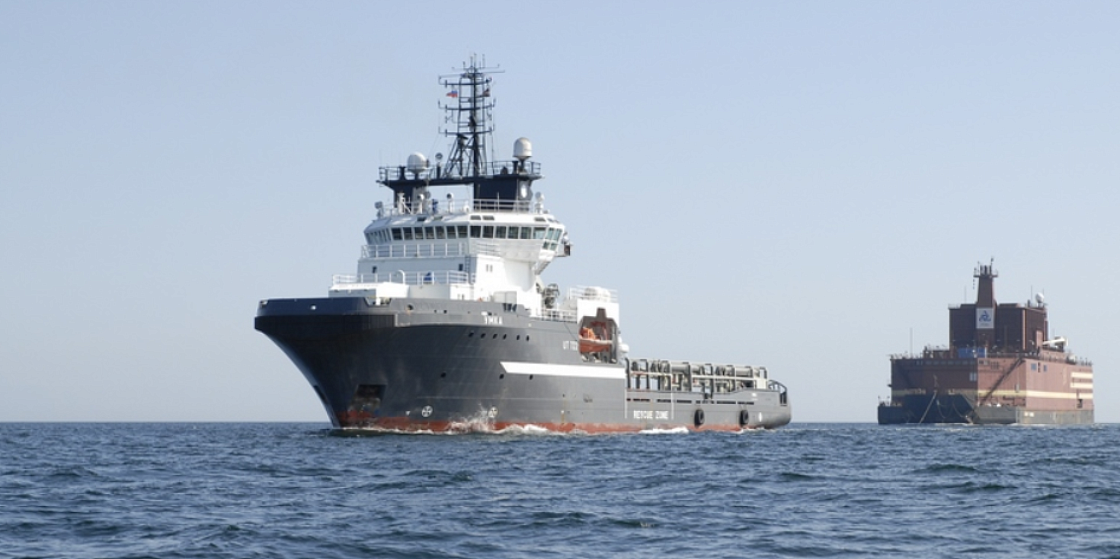
Photo: morspas.com
An Oil Spill Averted by Russian Marine Rescue Service
An operation to rescue two oil transport vessels that have run aground off the Vaygach Island coast is over, says the Marine Rescue Service. In late November 2021, two barges towed by a sea tug, with a cargo of some 7,000 tons of diesel fuel and 170 tons of kerosene onboard, were caught in storm followed by rapid ice buildup and went on the rocks.
To prevent the oil cargo from being discharged into the Kara sea, four rescue vessels were deployed in the area, with the first of them arriving in just about half an hour upon receiving the distress call. With both barges’ hulls damaged, it was deemed overly risky to drag them off the rocks. Therefore, it was decided to first unload about two thirds of their cargo to tankers engaged in this operation. Once removed from the rocks, the barges were tugged to the port of Severodvinsk. The mission was a challenging one, as the caravan had to make its way through the fields of dense ice, which was up to one meter thick. According to first responders, the caravan got repeatedly stuck in it. Both vessels were handed over to the owner in mid-January this year.
The whole salvage operation took more than a month. For rescue workers, these were long and hard weeks, with temperatures in the mission area staying around minus 20 degrees Celsius, and the operation taking place during polar night. Owing to a timely and highly professional response by the Marine Rescue Service, a major environmental incident -- or even a disaster -- was averted.
These events may be also interpreted in a wider context. The incident showed that Russia’s emergency services have all necessary competences and technical means to ensure safe navigation on the Northern Sea Route. This understanding is of special importance in light of the plans to make the NSR navigable all year round.
Arctic Today is a column by PORA CEO Alexander Stotskiy analyzing major international, national and regional events and trends in the Arctic.
To prevent the oil cargo from being discharged into the Kara sea, four rescue vessels were deployed in the area, with the first of them arriving in just about half an hour upon receiving the distress call. With both barges’ hulls damaged, it was deemed overly risky to drag them off the rocks. Therefore, it was decided to first unload about two thirds of their cargo to tankers engaged in this operation. Once removed from the rocks, the barges were tugged to the port of Severodvinsk. The mission was a challenging one, as the caravan had to make its way through the fields of dense ice, which was up to one meter thick. According to first responders, the caravan got repeatedly stuck in it. Both vessels were handed over to the owner in mid-January this year.
The whole salvage operation took more than a month. For rescue workers, these were long and hard weeks, with temperatures in the mission area staying around minus 20 degrees Celsius, and the operation taking place during polar night. Owing to a timely and highly professional response by the Marine Rescue Service, a major environmental incident -- or even a disaster -- was averted.
These events may be also interpreted in a wider context. The incident showed that Russia’s emergency services have all necessary competences and technical means to ensure safe navigation on the Northern Sea Route. This understanding is of special importance in light of the plans to make the NSR navigable all year round.
Arctic Today is a column by PORA CEO Alexander Stotskiy analyzing major international, national and regional events and trends in the Arctic.
24 January 2022





